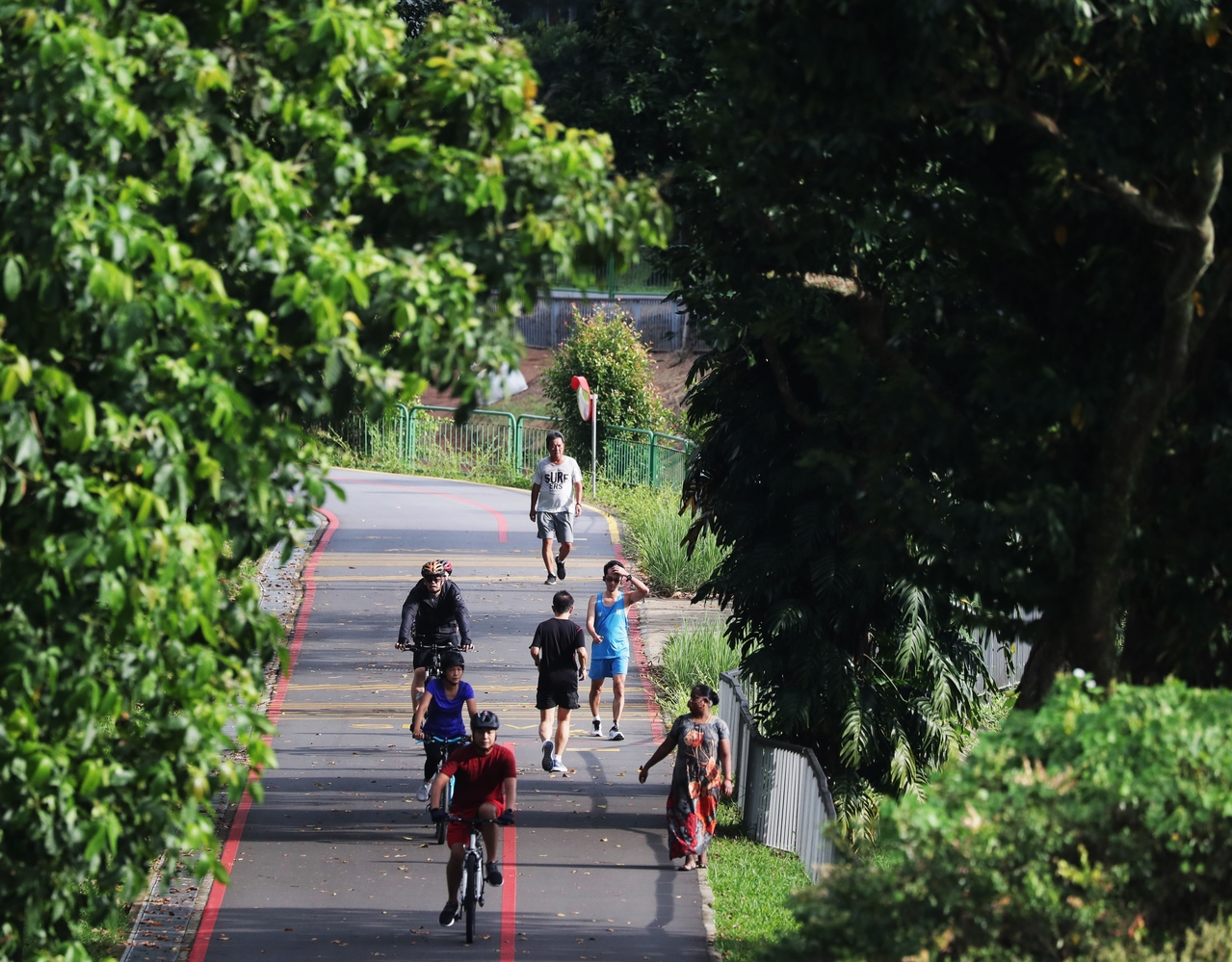Singapore residents exercising more and eating healthier now compared with last year: Poll
Sign up now: Get ST's newsletters delivered to your inbox

Women reported feeling less healthy than men, both physically and mentally.
ST PHOTO: KELVIN CHNG
SINGAPORE - People here are exercising more and eating healthier now compared with last year, with about three in four saying physical health is "very much" a priority.
But nearly 25 per cent said their mental health has suffered, with money woes being the top reason for anxiety and depression, a recent poll has found.
An online survey of 1,000 Singapore residents aged between 18 and 70 found that 44 per cent felt physically healthier now than before the Covid-19 outbreak.
Sixty-six per cent of respondents reported higher motivation to adopt healthy lifestyles, said communications firm Wunderman Thompson in a report on Monday (July 5).
However, work commitments can get in the way.
Despite their motivation level, 61 per cent reported living more sedentary lives.
The poll found that 46 per cent of respondents reported longer working hours, and 73 per cent said they spend more time in front of their screens.
After money, stress about work and the impact from Covid-19 were the factors that affected mental health most, respondents said.
"Most worryingly, 39 per cent say they have considered suicide at some point, with 5 per cent saying they think of it every day and 8 per cent once or twice a week. Unemployed people were most likely to consider suicide every day or once or twice a week," the report said.
At a virtual press conference last Friday (July 2), Ms Malati Afridi, co-author of the study, said 48 per cent of people under 35 had considered suicide at least once in the past year, while the rate was 50 per cent for those with children under the age of six.
The study examined Covid-19's impacts on physical and mental health, as well as relationships and health inequities.
Although nearly a quarter of respondents reported suffering from anxiety and depression in the past year, 68 per cent believe there is a stigma against mental health issues in Singapore.
More than 65 per cent would avoid the topic with their family, even when there is an issue.
Dr Shawn Ee, director of The Psychology Practice, said this decline in mental health was not surprising.
He added: "Covid-19 is an abnormal event that interrupts our way of life. Any major lifestyle change that removes a coping strategy for stress, can tip someone over into feeling trapped. For example, avid gym goers would struggle when gyms are closed."
Covid-19's impacts have also carried over to family relationships, with 49 per cent of respondents agreeing that family stress has increased over the past year.
Inequities have also become more pronounced, across markers of gender, education levels, employment status and income.
Women reported feeling less healthy than men, both physically and mentally. The study cited a possible reason as women being more likely to juggle paid work with childcare or eldercare.
Individuals in the highest income bracket (earning $75,000 and above a year) and education level (having post-graduate qualifications) also reported more satisfaction with both physical and mental health.
Mr Gasper Tan, chief executive of Samaritans of Singapore, a suicide prevention centre, said one common anxiety cited by callers to their mental health helpline was uncertainty of the future due to financial insecurity and unemployment.
To cope with such struggles, Mr Tan advised: "It could be helpful to talk to someone by letting trusted family or friends know what they are going through.
"Having a listening ear can provide relief and assurance that they do not have to go through this difficult period alone."
Helplines
National Care Hotline: 1800-202-6868
Institute of Mental Health's Mental Health Helpline: 6389-2222
Samaritans of Singapore: 1800-221-4444
Touchline: 1800-377-2252
Care Corner Counselling Centre: 6353-1180
Institute of Mental Health's Mental Health Helpline: 6389-2222
Samaritans of Singapore: 1800-221-4444
Touchline: 1800-377-2252
Care Corner Counselling Centre: 6353-1180


